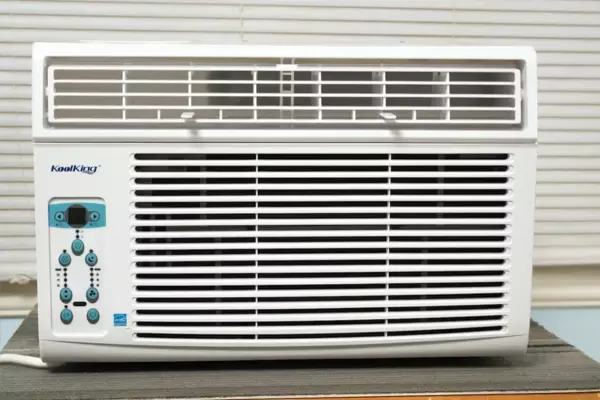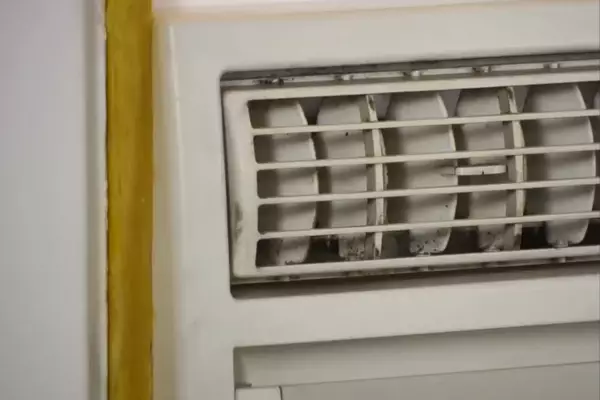Air conditioners are essential for maintaining comfort in homes and offices, especially during warmer months. However, they may occasionally present issues such as excessive vibration. Such a problem not only creates bothersome noise but can also signal deeper mechanical troubles.
Air conditioning units, like all machinery, need to operate smoothly to guarantee efficiency and longevity. An air conditioner vibrating excessively often indicates imbalance or looseness in its components. Over time, such issues can lead to significant wear and tear, affecting the unit’s overall performance and lifespan.
This article offers a deep dive into the causes of air conditioner vibration, practical solutions for addressing it, and preventive measures for avoiding future incidents. Through effective troubleshooting and preventive care, you can ensure your air conditioning unit performs at its best, contributing to a comfortable and peaceful environment.
Contents
AC Vibration Causes
Vibrations in an air conditioning unit are not only disruptive but could also hint at underlying mechanical issues. It’s crucial to identify the causes promptly to prevent further damage and ensure optimal functioning. Common causes of AC vibration include imbalanced fans, loose components, and worn out isolation pads.
Imbalanced Fans
An air conditioning unit comprises various moving parts, including fans. The fan within your AC unit plays a critical role in heat transfer, pushing hot air out and circulating cool air within your space. However, these fans can become imbalanced over time, mainly due to regular wear and tear or physical damage to the blades.
When the fan becomes imbalanced, it disrupts the smooth rotation, resulting in noticeable vibration throughout the unit. This effect is not dissimilar to an unbalanced washing machine during its spin cycle; the centrifugal forces generated create a significant amount of vibration and noise. If not addressed, an imbalanced fan can increase strain on the unit’s motor, potentially causing costly damage.

Loose Components
Another typical cause of AC unit vibrations is loose components. The screws, bolts, or other mechanical parts that hold your AC unit together can loosen over time. This loosening can occur due to various factors, including the normal operation of the unit, which involves regular movement and vibrations.
When these components are not secure, they can rattle against each other or the unit’s casing as the air conditioner operates. This rattle can escalate to the entire unit vibrating and causing significant noise. The prolonged rattling can also lead to other components loosening, further exacerbating the problem and possibly causing damage to the unit.
Worn Out Isolation Pads
Isolation pads are small pieces of rubber or cork materials placed under the air conditioner to absorb vibrations and reduce noise. These pads are crucial for minimizing operational noise and vibration, thus ensuring smooth performance.
However, like any other part of your air conditioner, isolation pads can wear out over time. Regular operation, exposure to the elements, and the weight of the AC unit itself can all contribute to the wearing down of these pads. When they’re worn out, they lose their capacity to absorb vibrations effectively. As a result, you may begin to notice more vibration and noise from your unit, a clear sign that the isolation pads may need replacement.
Diagnosing AC Vibration
Identifying the source of your AC unit’s vibration is the first step towards rectifying the issue. This process can be accomplished through a professional inspection or a DIY approach, depending on your level of comfort and expertise with air conditioner maintenance.
Professional Inspection
If you’re not comfortable diagnosing the problem yourself or if the issue seems complex, a professional HVAC technician can be an excellent resource. HVAC professionals are equipped with specialized training, experience, and tools that allow them to accurately diagnose various AC issues, including excessive vibration.
During a professional inspection, the technician will check all components of the AC unit, from the fan blades and screws to the isolation pads. They’ll be able to identify problematic components, diagnose the cause of the vibrations, and suggest the most suitable remedies. Hiring a professional not only guarantees an accurate diagnosis but also ensures safety, especially when dealing with electrical components.
DIY Inspection
For homeowners who are handy and comfortable performing basic DIY tasks, self-inspection can be a feasible option. Before you begin, it’s essential to understand the fundamental components of your AC unit and basic safety precautions.
Before performing any inspection or maintenance tasks, always ensure that the unit is powered off and unplugged to avoid any electrical accidents. Inspecting the fan for visible signs of damage, checking for loose components by shaking and listening for rattles, and assessing the condition of the isolation pads can give you clues to the source of the vibration.

Remedying AC Vibration
Once you’ve identified the cause of the vibrations, it’s time to implement the necessary remedies. Fixing an imbalanced fan, tightening loose components, and replacing worn isolation pads are common solutions to these issues.
Fixing Imbalanced Fans
Correcting an imbalanced fan involves either adjusting or replacing the fan blades. The process can be complex, as it requires careful handling to avoid causing further imbalance or damage.
If you’re uncomfortable doing it yourself, hiring a professional is the safest option. A well-balanced fan will not only reduce vibrations but also improve the efficiency of your AC unit. Keep in mind that, if left unaddressed, an imbalanced fan could put strain on the motor, leading to more serious issues down the line.
Tightening Loose Components
Loose components within the AC unit can be tightened to reduce vibrations. You’ll need to identify the loose parts and use the appropriate tools to secure them. Some parts may be visible and easy to access, while others might be hidden and require partial disassembly of the unit.
When tightening components, be careful not to over-tighten, as this can lead to stripped screws or other types of damage. It’s always best to tighten to the manufacturer’s specifications. In cases where a component continues to loosen repeatedly, it might be worth considering replacement.
Replacing Worn Isolation Pads
When the isolation pads are worn out, replacing them is the best course of action to reduce AC vibration. These pads are widely available in most hardware or home improvement stores, and replacing them is usually a straightforward task.
When choosing new pads, it’s important to select ones that are the correct size and thickness for your specific AC unit. They should fit snugly under the AC unit to provide the most effective absorption of vibrations. Installing new, quality isolation pads can dramatically reduce vibrations and noise from your air conditioner.

Preventive Measures
Prevention is always better than cure, especially when it comes to maintaining your air conditioning unit. By taking a few proactive steps, you can prevent issues like AC vibrations from cropping up and ensure your unit runs smoothly.
Regular AC Maintenance
Scheduling regular maintenance for your AC unit can help identify potential issues before they escalate. Regular maintenance should include cleaning the AC components, checking for loose parts, and inspecting the isolation pads for any signs of wear and tear.
A professional HVAC technician can perform a comprehensive maintenance check. However, some tasks, such as cleaning and basic inspections, can be done by homeowners who are comfortable with DIY tasks.
Timely Repairs and Replacements
The timely repair and replacement of faulty components is crucial in preventing issues like AC vibration. When problems are identified, it’s important to act quickly to prevent further damage. Whether you’re doing it yourself or hiring a professional, prompt attention to problematic components is key to maintaining the unit’s smooth operation.
For example, an imbalanced fan blade should be adjusted or replaced as soon as it’s identified. Similarly, loose components should be tightened immediately, and worn-out isolation pads should be replaced without delay. By staying on top of these issues, you can ensure that your AC unit continues to run smoothly and efficiently, providing you with a comfortable and peaceful living environment.
Frequently Asked Questions
What can cause an air conditioner to vibrate excessively?
Typically, AC vibration is caused by imbalanced fans, loose components within the unit, or worn out isolation pads.
Can AC vibration damage the unit?
Yes, excessive vibration can cause damage over time. It can lead to wear and tear on components, reducing the unit’s efficiency and lifespan.
Should I fix AC vibration myself or call a professional?
While some simple tasks can be handled by a homeowner comfortable with DIY tasks, others might require professional expertise. Complex problems or homeowners uncomfortable with DIY repairs should seek professional help.
Conclusion
Maintaining a smooth-operating and efficient air conditioner involves more than just regular cleaning. Attending to issues such as excessive vibration plays a significant role in preserving the unit’s functionality and prolonging its lifespan.
Addressing the causes of AC vibration promptly can save you from costly repairs or replacements in the future. Imbalanced fans, loose components, and worn-out isolation pads can all contribute to vibration, and understanding how to fix these issues can be immensely beneficial.
In the end, keeping your air conditioning unit in good working order not only guarantees a cool, comfortable environment but also safeguards your investment. Through preventive care and timely remedies, you can ensure your AC unit remains a reliable and quiet contributor to your home’s comfort.

